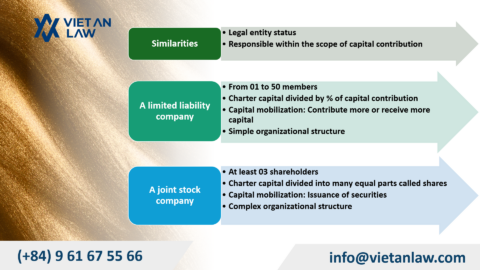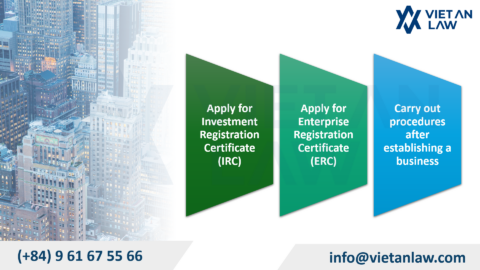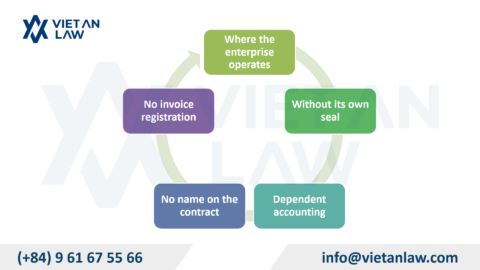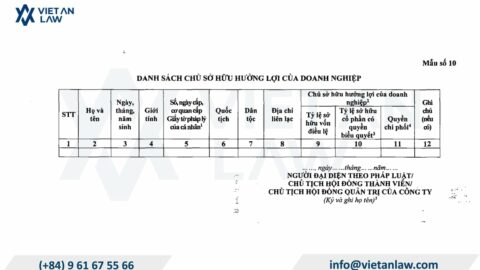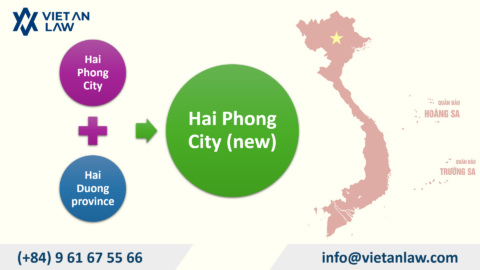Singapore and Vietnam have officially established a bilateral relationship for nearly 45 years and have become significant partners in various fields, particularly in trade. With the wave of foreign investment flowing into Vietnam, Singaporean investors have not missed the opportunity, especially in the context of Vietnam’s rapidly growing economy and increasingly open legal framework, which encourages foreign investment. Singaporean investors are focusing on Vietnam’s burgeoning sectors such as real estate, infrastructure, construction, food processing, and manufacturing. The two countries have also signed a Double Taxation Avoidance Agreement, making Vietnam a favored investment destination for Singaporean investors. Viet An Law will hereby provide you with legal matters concerning the way to establish Singaporean-owned company in Vietnam.
Table of contents
According to the Foreign Investment Agency of the Ministry of Planning and Investment, as of July 20, the total registered foreign investment in Vietnam amounted to over USD 18 billion, a 10.9% increase compared to the same period in 2023. Of this, Singapore continues to lead in total investment in Vietnam, with specific investments reaching nearly USD 6.52 billion, accounting for approximately 36.2% of the total foreign investment, an increase of 79.1% compared to the same period in 2023.
There are currently 10 Vietnam-Singapore Industrial Parks (VSIP) in Vietnam, attracting significant investments and creating over 290,000 job opportunities for the labor market.
Some reasons why Singaporean investors are interested in establishing companies in Vietnam include:
Singaporean entrepreneurs are particularly interested in and eager to invest in sectors that are currently “hot” in Vietnam, such as industrial real estate; transitioning to clean energy, using LNG as a replacement for coal-powered plants, etc. Singaporean companies are also expanding their operations in major cities such as Hanoi and Ho Chi Minh City, as well as other areas like Vinh Phuc, Bac Ninh, and Binh Duong provinces.
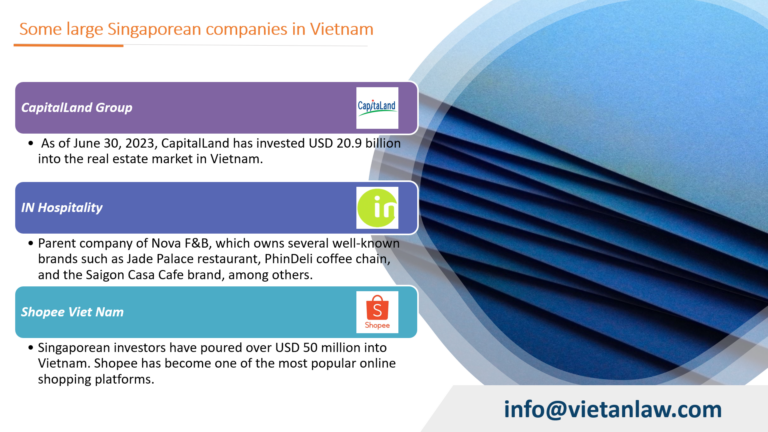
CapitalLand Group (Capital Land) is one of Asia’s largest diversified real estate groups, headquartered in Singapore. CapitalLand owns a diversified portfolio, including mixed-use developments, retail spaces, commercial office complexes, lodging services, residential areas, industrial zones, etc. As of June 30, 2023, CapitalLand had invested USD 20.9 billion in Vietnam’s real estate market.
IN Hospitality is a company that specializes in managing and operating brands under Nova F&B. Through VinaCapital, a Singaporean investor executed an M&A deal with the Nova F&B brand. Although the specific value of the deal was not disclosed, the acquisition of Nova F&B brands indicates a significant investment to gain management rights in the restaurant and coffee sector.
Nova F&B owns numerous well-known brands, such as Jade Palace Restaurant, PhinDeli coffee chain, Saigon Casa Cafe brand, and several others.
This online shopping platform is familiar to almost everyone. Launched in 2015, Shopee consistently rolls out attractive promotional programs to entice consumers. Therefore, it is not surprising that Shopee consistently tops e-commerce rankings in Vietnam, outpacing its competitors, and has become a popular online shopping application in Vietnam. To achieve this success, Singaporean investors have continually poured substantial capital into the Vietnamese market. Specifically, in 2016, Shopee Vietnam received an investment of USD 50 million, and since then, more capital has continued to flow into the Vietnamese market. Additionally, the Shopee Pay application is also seen as a potential player in Vietnam’s payment market.
Under Clause 1, Article 33 of the Law on Investment 2020, the dossier includes:
According to Clause 1, Article 36 of Decree 31/2021/ND-CP, the investor submits the above-mentioned dossier to the investment registration agency. If the project is implemented in two or more provincial administrative units, submit the dossier to the Department of Planning and Investment of one province/city directly under the central government where the project is implemented or the office is planned to be located.
Processing time: Within 15 days from the date of receipt of a complete and valid dossier, the Department of Planning and Investment will issue an Investment Registration Certificate to the foreign investor. In case of rejection, the Department of Planning and Investment will reply in writing, clearly stating the reasons (according to Clause 3, Article 36 of Decree 31/2021/ND-CP).
After the company is granted the Investment Registration Certificate, it continues to complete procedures to obtain the Enterprise Registration Certificate. The dossier is stipulated in Chapter IV of Decree 01/2021/ND-CP, including:
The dossier is submitted to the Department of Planning and Investment of the province where the foreign-invested company’s headquarters are located.
Immediately after the Enterprise Registration Certificate is issued, the company proceeds to engrave the corporate seal. The company can authorize Viet An Law Firm or handle the seal engraving and notify the Department of Planning and Investment regarding the use of the seal. The company can independently determine the form, quantity, and content of the seal, but it must include the company’s name and business code.
After completing the above steps, the foreign-invested company must open a direct foreign investment capital account in foreign currency at a bank authorized to conduct foreign exchange transactions in Vietnam.
After completing the above steps, investors must contribute investment capital as committed, register for a digital signature, request the issuance of electronic invoices, and file tax declarations…
According to current regulations, this method does not require foreign investors to obtain an Investment Registration Certificate. Instead, they only need to register their capital contribution, share purchase, or equity acquisition with the Department of Planning and Investment. Once approval is obtained, the investor will update the enterprise registration information following corporate law. This approach helps investors save both time and costs.
Step 1: Complete internal corporate procedures, execute the transfer contract, and finalize the capital transfer
Step 2: Foreign investors register their capital contribution, share purchase, or equity acquisition into the economic organization
The required documents include:
Authority: The Department of Planning and Investment where the enterprise is headquartered.
Procedure: If the foreign investor’s capital contribution, share purchase, or equity acquisition complies with the ownership ratio conditions and the investment forms set forth in the Schedule of Commitments and Vietnamese law, within 15 days of receiving a complete dossier, the Department of Planning and Investment will issue a written notification. In case the dossier does not meet the requirements, the Department of Planning and Investment will issue a written notification stating the reasons for rejection.
For customers seeking further legal advice on corporate, commercial, or investment-related matters in Vietnam, please contact Viet An Law Firm for more details!
Updated: 09/2024
